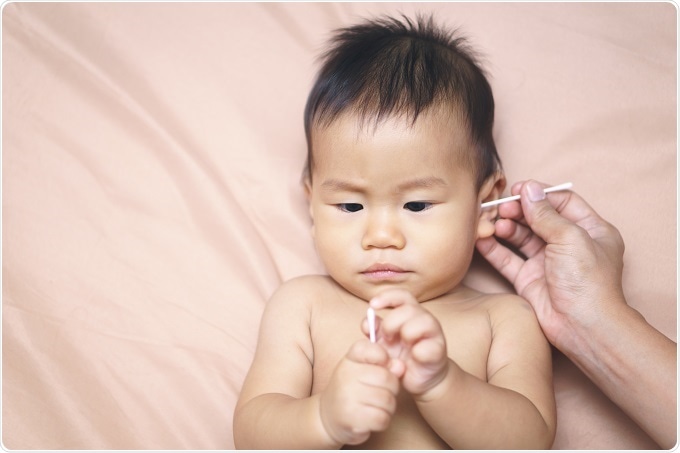Scientists have warned that in the U.S., more than 12,000 children every year are left needing emergency treatment for ear injuries as a result of cotton bud use.
 Credit: BonNontawat/Shutterstock.com
Credit: BonNontawat/Shutterstock.com
According to a study by researchers from Nationwide Children’s Hospital, an estimated 263,000 children (aged younger than 18 years) received A&E treatment for cotton bud related ear injuries over a 20-year period – that’s around 12,500 a year or 34 each day.
Lead author of the study, Kris Jatana (The Ohio State University Wexner Medical Center) warns that it is incorrect that ear canals need to be cleaned in the home setting, and that cotton buds should not be used to do so:
The ear canals are usually self-cleaning. Using cotton tip applicators to clean the ear canal not only pushes wax closer to the ear drum, but there is a significant risk of causing minor to severe injury to the ear.”
For the study, Jatana and team used data from the National Electronic Injury Surveillance System (NEISS), a database that tracks consumer product-related and sports- and recreation-related injuries requiring emergency hospital treatment across the U.S. The team analysed data covering a 21-year period, from 1990 through to 2010.
As reported in the The Journal of Pediatrics, the researchers found that most (73%) of the injuries were the result of cotton buds being used to clean the ears, 10% were the result of playing with cotton buds and 9% were the result of children falling whilst having a cotton bud in the ear. The majority (77%) of injuries occurred when children used the buds themselves, 16% when parents cleaned children’s ears with them and 6% when siblings did so. About two-thirds of the patients were aged under 8 years and in 40% of cases the children were aged between 0 and 3 years.
The most common injury was foreign body sensation, which accounted for 30% of cases, followed by perforated ear drum (25%) and soft tissue injury (23%). For children aged 8 to 17 years, foreign body sensation was the most common injury, while perforated ear drum was the most common for children aged younger than 8 years.
Jatana says “While the number of overall injuries from cotton tip applicators did decrease during the 21 years we looked at in our study, it is still unacceptably high… These products may seem harmless, but this study shows how important it is that they not be used to clean ears.”